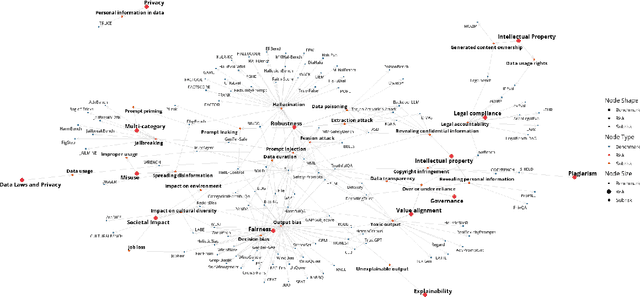Anna Sokol
Breaking Language Barriers: Equitable Performance in Multilingual Language Models
Aug 18, 2025Abstract:Cutting-edge LLMs have emerged as powerful tools for multilingual communication and understanding. However, LLMs perform worse in Common Sense Reasoning (CSR) tasks when prompted in low-resource languages (LRLs) like Hindi or Swahili compared to high-resource languages (HRLs) like English. Equalizing this inconsistent access to quality LLM outputs is crucial to ensure fairness for speakers of LRLs and across diverse linguistic communities. In this paper, we propose an approach to bridge this gap in LLM performance. Our approach involves fine-tuning an LLM on synthetic code-switched text generated using controlled language-mixing methods. We empirically demonstrate that fine-tuning LLMs on synthetic code-switched datasets leads to substantial improvements in LRL model performance while preserving or enhancing performance in HRLs. Additionally, we present a new dataset of synthetic code-switched text derived from the CommonSenseQA dataset, featuring three distinct language ratio configurations.
BenchmarkCards: Large Language Model and Risk Reporting
Oct 16, 2024


Abstract:Large language models (LLMs) offer powerful capabilities but also introduce significant risks. One way to mitigate these risks is through comprehensive pre-deployment evaluations using benchmarks designed to test for specific vulnerabilities. However, the rapidly expanding body of LLM benchmark literature lacks a standardized method for documenting crucial benchmark details, hindering consistent use and informed selection. BenchmarkCards addresses this gap by providing a structured framework specifically for documenting LLM benchmark properties rather than defining the entire evaluation process itself. BenchmarkCards do not prescribe how to measure or interpret benchmark results (e.g., defining ``correctness'') but instead offer a standardized way to capture and report critical characteristics like targeted risks and evaluation methodologies, including properties such as bias and fairness. This structured metadata facilitates informed benchmark selection, enabling researchers to choose appropriate benchmarks and promoting transparency and reproducibility in LLM evaluation.
Conformalized Selective Regression
Feb 26, 2024Abstract:Should prediction models always deliver a prediction? In the pursuit of maximum predictive performance, critical considerations of reliability and fairness are often overshadowed, particularly when it comes to the role of uncertainty. Selective regression, also known as the "reject option," allows models to abstain from predictions in cases of considerable uncertainty. Initially proposed seven decades ago, approaches to selective regression have mostly focused on distribution-based proxies for measuring uncertainty, particularly conditional variance. However, this focus neglects the significant influence of model-specific biases on a model's performance. In this paper, we propose a novel approach to selective regression by leveraging conformal prediction, which provides grounded confidence measures for individual predictions based on model-specific biases. In addition, we propose a standardized evaluation framework to allow proper comparison of selective regression approaches. Via an extensive experimental approach, we demonstrate how our proposed approach, conformalized selective regression, demonstrates an advantage over multiple state-of-the-art baselines.
 Add to Chrome
Add to Chrome Add to Firefox
Add to Firefox Add to Edge
Add to Edge